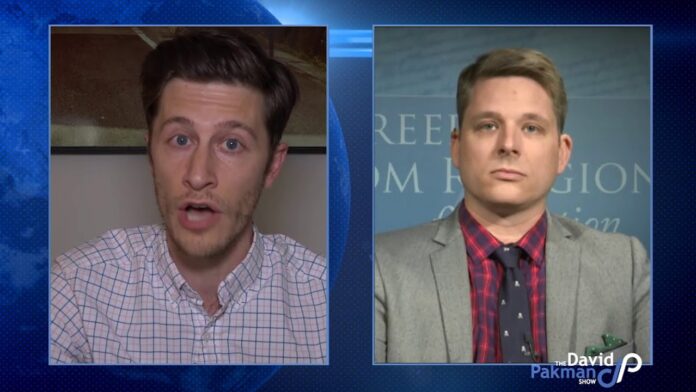Air pollution is a major issue that affects not only urban areas but also the entire planet. It is caused by the release of harmful substances into the atmosphere, which can have serious consequences on both human health and the environment. In recent years, air pollution has become a growing concern in urban areas due to the increase in population and industrialization.
In this blog post, we will explore the causes of air pollution in urban areas, its effects on health and the environment, and the various solutions and initiatives taken by governments to reduce its impact.
Causes of Air Pollution in Urban Areas
There are several factors that contribute to air pollution in urban areas, including industrial activities, transportation, and human behavior. Let’s take a closer look at each of these factors.
Industrial Activities
Industries play a significant role in the economic development of urban areas. However, they are also one of the main sources of air pollution. The burning of fossil fuels in industries releases large amounts of particulate matter (PM), sulfur dioxide (SO2), nitrogen oxides (NOx), and other pollutants into the air.
Moreover, the production of goods such as plastics and chemicals also contributes to air pollution. These industries release toxic chemicals into the atmosphere, which can have adverse effects on human health and the environment.
Transportation
Transportation is another major contributor to air pollution in urban areas. With the increase in population and urbanization, there has been a rise in the number of vehicles on the roads, leading to an increase in emissions of harmful gases such as carbon monoxide (CO), NOx, and PM.
The use of outdated and poorly maintained vehicles also adds to the problem. These vehicles emit higher levels of pollutants, making air quality worse in urban areas.
Human Behavior
Human behavior also plays a significant role in contributing to air pollution in urban areas. Activities such as open burning of waste, smoking, and the use of firecrackers during festivals release hazardous chemicals into the air, polluting the environment.
Moreover, the excessive use of electricity generated from fossil fuels also adds to air pollution. It is estimated that around 80% of urban areas’ electricity needs are met by burning fossil fuels, which releases large amounts of pollutants into the atmosphere.
Effects of Air Pollution on Health and Environment

The effects of air pollution on human health and the environment are severe and cannot be ignored. Here are some of the major impacts of air pollution in urban areas.
Health Effects
Exposure to air pollution can have adverse effects on human health, ranging from minor respiratory problems to serious diseases. The pollutants released into the air can cause irritation in the nose, throat, and lungs, leading to coughing, wheezing, and shortness of breath.
Long-term exposure to air pollution has been linked to chronic respiratory diseases such as asthma, bronchitis, and lung cancer. Moreover, it can also aggravate existing heart conditions and increase the risk of stroke.
Children, pregnant women, and the elderly are more vulnerable to the health effects of air pollution. Air pollution can also affect fetal development and lead to premature births and low birth weight.
Environmental Effects
Air pollution not only affects human health but also has a significant impact on the environment. Pollutants released into the air can cause acid rain, which can damage crops, forests, and bodies of water.
Moreover, air pollution can also lead to the formation of smog, a type of air pollution that is visible and has a harmful effect on plants and animals. Smog also reduces visibility, making it difficult for drivers to see clearly, increasing the risk of accidents.
Furthermore, air pollution can harm wildlife and disrupt the balance of ecosystems. Pollutants can also deposit into bodies of water, affecting aquatic life and making the water unsafe for consumption.
Solutions to Reduce Air Pollution

The need of the hour is to take immediate action to reduce air pollution and its adverse effects. Here are some solutions that can help in reducing air pollution in urban areas.
Switch to Renewable Energy Sources
One of the most effective ways to reduce air pollution is by switching to renewable energy sources such as solar, wind, or hydropower. These sources of energy are clean and do not emit harmful pollutants into the atmosphere.
Governments and individuals can invest in renewable energy infrastructure to reduce their reliance on fossil fuels, which are major contributors to air pollution.
Promote Public Transportation
Encouraging the use of public transportation is another way to reduce air pollution in urban areas. With more people using public transport, there will be a decrease in the number of vehicles on the roads, leading to lower emissions of pollutants.
Governments can provide incentives such as subsidies or tax breaks to make public transportation more affordable and convenient for people. They can also invest in improving the existing public transport infrastructure and making it more reliable and efficient.
Implement Green Building Practices
Many cities have started implementing green building practices to reduce air pollution. These practices focus on constructing buildings that are energy-efficient and use sustainable materials.
Green buildings have better ventilation systems, which help in reducing indoor air pollution. They also use renewable energy sources, such as solar panels, to generate electricity, reducing the need for fossil fuels.
Encourage Responsible Waste Management
Proper waste management can also play a vital role in reducing air pollution in urban areas. The open burning of waste releases a large amount of toxic gases into the atmosphere, contributing to air pollution.
Governments should enforce strict regulations on waste disposal and promote recycling and composting to reduce the amount of waste that ends up in landfills. Individuals can also play their part by properly disposing of their waste and reducing their use of single-use plastic products.
Government Initiatives and Policies
Governments around the world have recognized the severity of air pollution and have taken several initiatives to reduce its impact. Let’s take a look at some of the policies and programs implemented by governments to tackle air pollution in urban areas.
The Clean Air Act (CAA)
The Clean Air Act was passed in the United States in 1970 to regulate air emissions from industries and vehicles. Under this act, the Environmental Protection Agency (EPA) sets National Ambient Air Quality Standards (NAAQS) for six major pollutants, including PM, SO2, and NOx, to protect public health and the environment.
Moreover, the CAA also encourages the use of clean energy and promotes the development of technology to reduce emissions from vehicles and industries.
The National Clean Air Program (NCAP)
In 2019, the Indian government launched the National Clean Air Program with the aim of reducing air pollution levels by 20-30% by 2024. This program focuses on implementing city-specific action plans to control air pollution and promoting research and innovation in clean technologies.
The NCAP also aims to strengthen the monitoring and enforcement of air quality standards and increase public participation in reducing air pollution.
The European Union’s Clean Air Policy Package
The European Union (EU) has set ambitious targets to reduce air pollution levels through its Clean Air Policy Package. This package includes measures to reduce emissions from industries, shipping, and vehicles and encourages the use of renewable energy sources.
Moreover, the EU has also implemented the Air Quality Directive, which sets air quality standards for PM, NO2, and other harmful pollutants and requires member states to adopt measures to improve air quality.
Conclusion
Air pollution is a pressing issue that requires immediate action. The increase in population and urbanization has led to a rise in air pollution levels in urban areas, posing a threat to human health and the environment.
It is crucial for governments to take proactive measures to reduce air pollution, such as promoting the use of renewable energy sources, encouraging public transportation, and implementing strict regulations on waste management.
As individuals, we can also contribute to reducing air pollution by making small changes in our daily lives, such as using public transport, properly disposing of waste, and conserving energy. By working together, we can make a significant impact in improving the air quality in urban areas and creating a healthier and cleaner environment for future generations.









